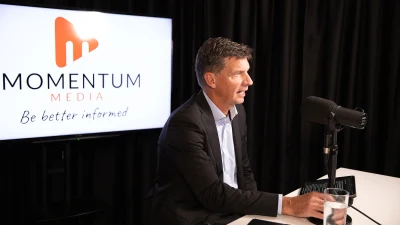Hedge funds misrepresented as risky
By Lachlan Douglas
I am writing in response to the Money Management article titled “Hedge funds fail the asset class test” (Money Management, May 24) by Rob Keavney.
In this article, Mr Keavney makes a number of assertions about hedge funds which fundamentally misrepresent the nature of hedge fund investing. The core problem with Mr Keavney's article is that it makes generalised statements about the hedge fund industry based on understanding of one type of hedge fund.
From this narrow basis he forms the conclusion that hedge funds cannot be defensive investments - primarily because of the presumption that hedge funds use derivatives, excessive leverage and rely on manager trading skill as the source of return.
There are a number of reasons why Mr Kearney's article is misleading. The first point is that hedge funds are difficult to understand not so much because they are technically complex, but rather that there are so many different types of hedge fund strategies.
Hedge funds can be classified into more than a dozen broad categories when broken down by strategy conception, such as long/short equity, global macro and convertible arbitrage. And then within each broad category, each manager can implement its chosen strategy in a completely different way to a similarly categorised peer.
This diversity of strategy implementation means that hedge funds might pursue vastly different performance objectives, which in turn means that it is wrong to generalise when discussing the risks of hedge fund investing.
Secondly, Mr Kearney makes an argument against hedge funds centred on the use of derivatives. He states that hedge funds use derivatives exclusively to structure market positions: "they do not do this by obtaining physical holdings but rather derivatives".
In fact, different hedge funds use derivatives to varying degrees and some hedge funds are constructed with no derivatives whatsoever. Indeed, there are traditional bond and equity funds with more derivatives exposure than many hedge funds.
The third point refutes Mr Keavney's implication that hedge funds use "massive gearing", which is a misnomer. In reality, many hedge fund strategies are deployed with no leverage, or very small degrees of leverage. Examples of strategies that typically use less than 1.5 times leverage are private placement arbitrage; merger arbitrage; distressed securities; and the highly risk-controlled long/short equity variants (such as market neutral equity and statistical arbitrage).
Many hedge funds do use higher degrees of leverage, but that is not necessarily a bad thing. The issue here should not be that leverage is used per se, but rather that the degree of leverage is appropriate for the underlying strategy. Convertible arbitrage managers, for example, can invest very conservatively and still show leverage of more than four times.
The only hedge fund mentioned in the article, Long Term Capital Management, would have fitted Mr Keavney's hedge fund stereotype - before it blew up. It was an example of what is called a global macro fund and it did make highly-geared (100 times leverage) top-down market timing calls using derivatives. It was a highly speculative and, despite the name, completely unsuitable for the portfolio of a serious long-term investor.
The fourth point relates to Mr Keavney's statements that "hedge funds rely on the short-term trading skills of the manager" and that hedge funds only make money through market timing and "correctly anticipating short-term market movements". This too is misleading. It is true that the returns of hedge funds can generally be attributed to the work of the manager, but not necessarily to the manager's "short-term trading skills".
As an example of how hedge funds add value consider long/short equity, the first investment strategy to carry a hedge fund label.
The classic long/short equity manager holds fewer than one hundred positions and has an average portfolio turnover of many months. In this regard, these hedge funds are similar to traditional active equity managers in that the value added by the manager is derived from the correct identification of medium to long-term market pricing inefficiencies through fundamental valuation of stocks.
Radically different to the classic long/short manager, but still based on the long/short principle, are some types of model-driven equity market arbitrage managers. Here, thousands of positions are taken and portfolio turnover is measured in minutes. But these model-driven managers are not making "hairy-chested" short-term market timing calls. They do trade over the short-term, but the source of value is pretty boring. They identify very short-term inefficiencies created by frictions in the markets and are simply market makers being rewarded for providing market liquidity.
The first long/short manager above is giving investor's exposure to its skills in exploiting equity market valuation inefficiencies. The second gives exposure to its skills in exploiting equity market spread inefficiencies and transacting equities cheaply. Neither makes market-timing calls.
It is true that a hedge fund will not have much to offer if it tries to time markets, or simply gives investors complicated exposure to traditional asset classes. However, a hedge fund that exploits the market inefficiencies that most investors have very little exposure to will provide positive diversification benefits. Examples of the sources of such inefficiencies are the level of market liquidity and volatility, the extent of merger activity, and the level of convertible bond issuance.
In conclusion, can the serious long-term investor think of hedge funds as defensive investments? The answer depends on the type of hedge fund strategy in question; the way in which the strategy is implemented; and the investor's existing exposure to other asset classes.
Hedge funds do not necessarily use derivatives, leverage, or rely on market timing. The point is that it is wrong to generalise about hedge funds as Mr Keavney has when some can be very defensive indeed.
Lachlan Douglas is at Shed Enterprises
Recommended for you
In this episode of Relative Return, host Laura Dew speaks with Russel Pillemer, chief executive of Pengana Capital Group, to discuss the opportunities in global private credit in this market environment.
In this episode of Relative Return, host Laura Dew speaks with Steve Johnson, founder and CIO at Forager Funds Management, about the impact of human psychology on investing and whether fund managers can ever beat algorithms.
In this episode of Relative Return, host Laura Dew speaks with Daniel Bower, chief product officer at FinClear, and Bill Keogh, chief executive of Transact1 (a FinClear subsidiary) to discuss cash as an asset class.
In this episode of Relative Return, host Maja Garaca Djurdjevic is joined by shadow treasurer Angus Taylor to discuss the current state of the financial advice sector, the economy, the housing affordability crisis and more.












